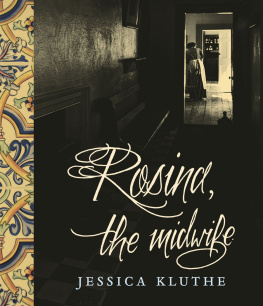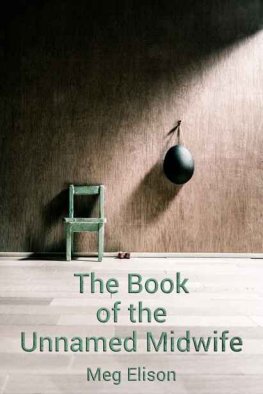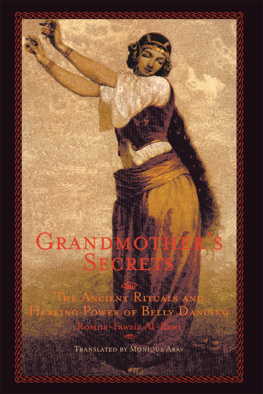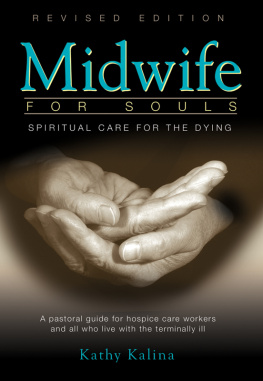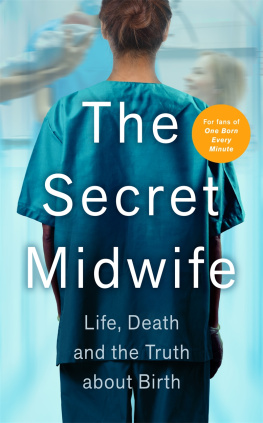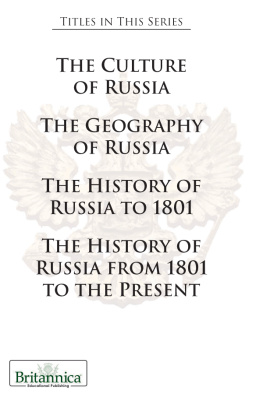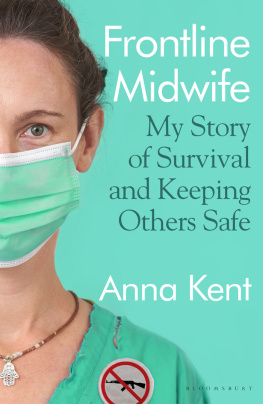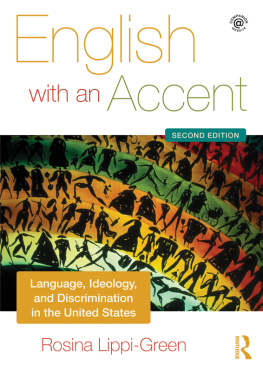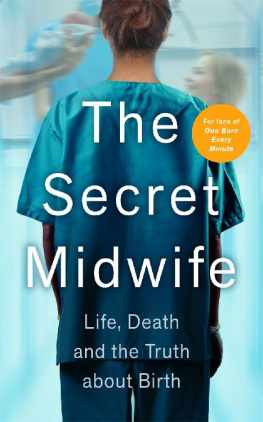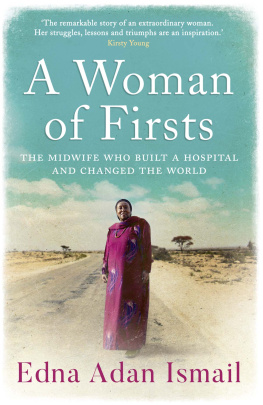ACKNOWLEDGMENTS
I would like to thank my publisher, Ruth Linka, for believing in this book, and the fine, fine people at Brindle & Glass for making this project possible. I thank my editor for loving Rosina, and for coming with me, line by line, to Calabria and backyou are a gem, Linda Goyette.
For the striking cover photograph, thank you Henry Roxas. For the hand-drawn, beautiful map, the family tree, and the lettering on the cover, I thank you very much, Karl Sundquist.
I thank all of my University of Victoria workshop peers and instructors. Lynne Van Luven, without your engagement with my manuscript, this book would not exist. Thank you, David Leach, for asking important questions and telling me that I had to go to Calabria. Thank you, Lorna Crozier, for permitting me to be poetic. Thank you, Melanie Siebert, and my MFA cohort: Amanda Jardine, Yasuko Thahn, Peter Boychuck, and Michael Nardone.
I am so grateful for the love and constant support of my parents: a heartfelt thank you, Mom and Dad, for encouraging me to write. Thank you to all my famiglia and my family-like friends from the top branches to the roots. I especially wish to thank my immediate family, Melissa, Jason, Cory, Joseph, Les, Robin, and Brandy, and dear friends Jenny and Karl for letting me write you into my stories. Thank you, Jim and Janet, for your readiness and willingness to support me.
Nanni and Nonno, I thank you for telling me stories.
A special thank you to Nonno for letting me stand on his doorstep. Thank you, Uncle Robert, for booking tickets to Calabria before youd read a word.
I thank my Reid for reading my work, for supplying that word when it escapes me, for reminding me how to place commas, and, most of all, for always pushing me forward.
And of course, I thank Rosina, the midwifewho is always with me.
MORE GREAT MEMOIRS FROM BRINDLE & GLASS
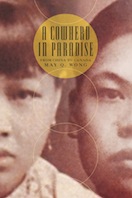
A Cowherd in Paradise
From China to Canada
by May Q. Wong
In 2006, the Prime Minister apologized to the Chinese people for the legislated discrimination created by Canadas head tax laws in the first half of the twentieth century, acknowledging the far-reaching and long-term consequences it has had on their families. A Cowherd in Paradise is the story of one such family.
The book chronicles the remarkable lives of Wong Guey Dang (19021983) and Jiang Tew Thloo (19112002). Ah Dang was born into an impoverished family and sold as a child. In 1921, his adoptive father paid a five-hundred-dollar head tax to send Ah Dang to Canada. Eight years later, driven to create a family of his own, Ah Dang returned to China, where he chose Ah Thloo as his bride from a matchmakers photo.
As a child, Ah Thloo worked as a cowherd and from the age of six was responsible for her familys fortunetheir water buffalo. Ah Thloo not only became a wife and mother, but also grew to be a courageous defender against invaders and a champion of the weak.
Married for over half a century, the couple was forced to live apart for twenty-five years because of Canadas exclusionary immigration laws. In Canada, Ah Dang became a successful Montreal restaurateur; while in China, Ah Thloo struggled to survive through natural disasters, wars, and revolutions. A Cowherd in Paradise is the moving tale of one couples search for love, family, and forgiveness.
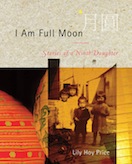
I Am Full Moon
Stories of a Ninth Daughter
by Lily Hoy Price
In this lyrical memoir, Lily Hoy Price writes with moving detail about her childhood and adolescence in a large Chinese Canadian family in the Cariboo country of northern British Columbia. The ninth daughter in a family of 12 children, Lily is an observant child who tucks away every image of life in rugged Quesnel during the 1930s for one unforgettable tale after another. She has carefully selected many of her father's early photographs to illustrate her stories. The celebrated pioneer photographer Chow Dong Hoy left a legacy of more the 1,500 photographs taken after 1909, and created an invaluable record of the cultural diversity of the Cariboo region. With similar sensitivity and the same eye for detail, Lily Hoy Price seamlessly weaves both the innocence and expectations of a young child and the struggles of her parents, who came to Canada during the racially charged days of the imposed $100 head tax.
Filled with love, confusion, family celebrations and family tragedies, these stories open a window on an era long past. Rich with the authors own insight, the stories are at times sad and humourous, but always thoughtful and interesting. I Am Full Moon creates an intimate portrait of life in an unusual, gifted family and is a significant addition to the historical literature of British Columbia.
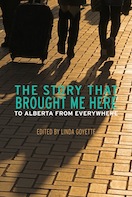
The Story That Brought Me Here
To Alberta From Everywhere
Edited by Linda Goyette
Thousands of newcomers are pouring into Alberta from around the globe, bringing unexpected gifts. Many are writers and storytellers.
What pulls them to Canada? What happens to them on the journey? What experiences have they deliberately left behind? What treasures do they bring? How do they describe their emerging sense of place and their creative aspirations in a new home?
In this moving collection of stories and poems, writers from around the world share their thoughts on creating a life in Alberta. Expressed with beauty and clarity, and sometimes translated from the writer's native tongue, these very personal accounts of joy and sadness, regret and humour, homesickness and exuberance, describe the defining moments of a departure and an arrival.
Contributors to The Story That Brought Me Here include Jalal Barzanji, Edmonton's first Writers in Exile; Rita Espeschit, Thuc Cong, Mohammed Al-Nassar, Monika Igali, Sabah Tahir, Therezinha Franca Kennedy, Sangmok Lee, Sudhir Jain, Yi Li, Athiann Makuach Garang, Marsh Hoke, Tortor Maruku, Reinekke Lengelle, Brian Brennan, A.K. Rashid, June Smith-Jeffries, Magdalena Witkowsky, Anna Mioduchowska, Ikponwosa I.K. Ero and Comfort Adesuwa Ero, Wilma Rubens, Patricia Lopez de Vloothduis, Neung-jae Park Mary Cavill, Mansoor Ladha, Chantal Hitayezu and many others. With photographs by Shabnam Sukhdev.

JESSICA KLUTHEs work has appeared in numerous literary publications including The Malahat Review, The Writers Block, Little Fiction, and Notebook Magazine. Recently, Kluthe won the Other Voices creative non-fiction contest for an excerpt from Rosina, the Midwife. In 2011, she was shortlisted for the Alberta Writers Guild James H. Gray award for the first chapter of this book. She received her MFA in writing from the University of Victoria. Kluthe is a writing instructor at Grant MacEwan University in Edmonton, Alberta, and is at work on a novel. Visit Jessica online at jessicakluthe.com and follow her on Twitter @jessicakluthe.
CINQUE
migrations arrows over oceans that chart the direction of movements
Young Rose spotted airplanes, flying low, over their farm. The massive grey planes, the first aircraft shed ever seen, were like heavy, metal birds. Aside from the hum in her ears, the only proof Rose had seen of them was the trail of smoke lining the blue sky. She ran to the shed, where Rosina stood in the doorway, hand to forehead, looking up. Nanni Rosina explained that they were warplanes. At age six, all Rose knew about the war was that cousin Francesco had left Calabria to fight in it, but she didnt dare ask after himlast time shed mentioned his name, shed sent his mother, her aunt, into a crying fit. Rose imagined the airplanes zooming over the ocean, whooshing around the Earth and back, and wondered why so many neighbours had taken ships across the ocean when people could fly so much faster. She didnt dare ask about that eitherleaving the village was a topic left to the adults. Shed heard stories about enormous navy ships. Four years earlier, in 1940, a naval battle had occurred off the Calabrian coast in the waters where shed since dipped her toes. A British squadron and Italian squadron fired at one another, until, after much damage, Italy claimed victory.

